Business Agility Manifesto - Diagnostics
by Roger T. Burlton, Ronald G. Ross & John A. Zachman1
The purpose of this questionnaire is to provide initial insights into an organization’s need and readiness to become more inherently agile. It can be applied to a multi-company or organizational value chain, an entire business entity, or a group within. Organizations are, by nature, complex and this diagnostic cannot capture peculiarities of an individual business nor can it substitute for a comprehensive assessment of what you should do and when you should do it. Please use it to gain awareness of gaps your organization needs to close in order to tackle never-ending change with more ease and confidence.
Terms Used in the Questionnaire
- Value Chain
Definition: the business knowledge and work needed to deliver products or services to a market organized according to their natural dependencies
Description: A value chain comprises all the work and business knowledge required to conceive, plan, market, sell, deliver, optimize and manage a set of products and services to satisfy customers. A value chain encompasses all participating parties whether inside or outside the organization. All products or services delivered to the same market are the result of a single value chain.
- Business Knowledge
Definition: the total set of business concepts, their organizing connections, and the business rules upon which the existence of the business depends
Description: Business knowledge can answer, for example, which processes make which decisions with which business rules, which roles are responsible for which activities, and what business terminology should be used to refer to what things in the business.
- Business Integrity
Definition: soundness of business results, resulting in part from uncompromising adherence to business rules, including contractual obligations and commitments
Description: An important manifestation of business Integrity is consistency in business results whenever equivalent business circumstances are encountered.
- Business Capability
Definition: a distinctive combination of business assets, including business knowledge, that can be used to accomplish an objective, perform one or more tasks, or achieve an end
Description: Business Capability is what the business must be able to do or to have to execute its business strategy.
Questionnaire
Section 1 - Perpetual Change
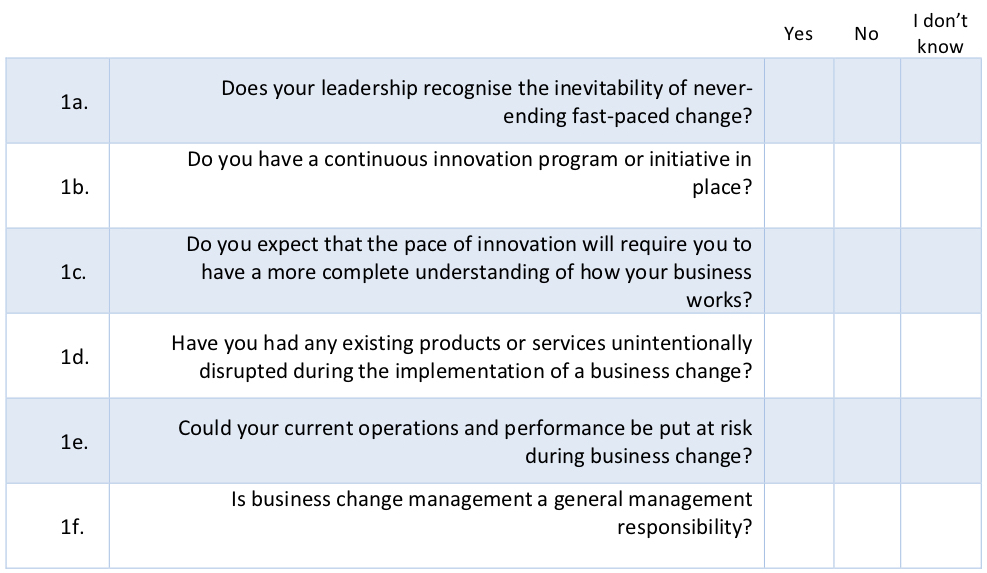
Section 2 - Business Strategy and Value Creation
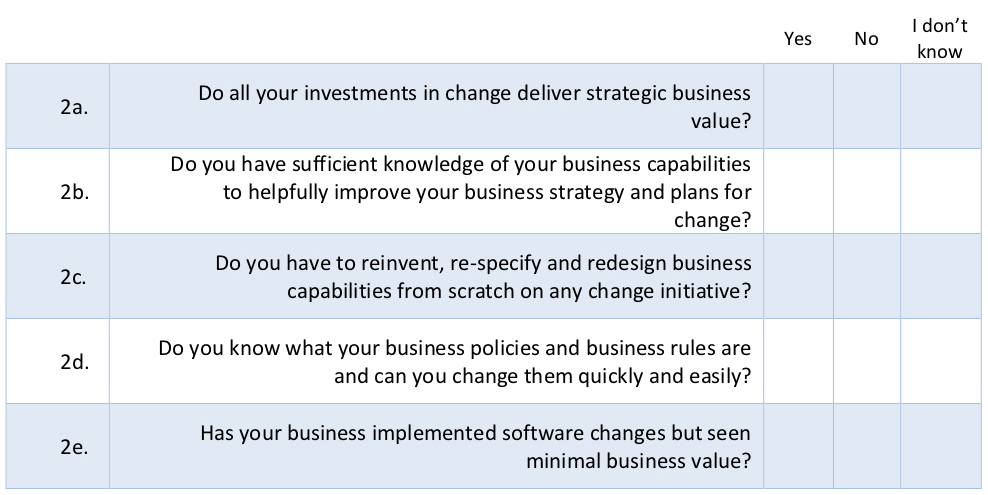
Section 3 - Business Integrity
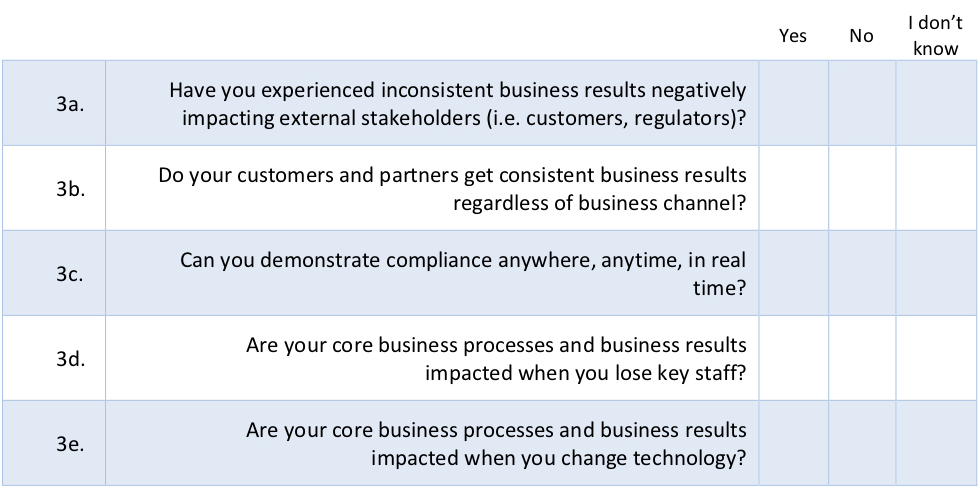
Section 4 - Business Solution Agility
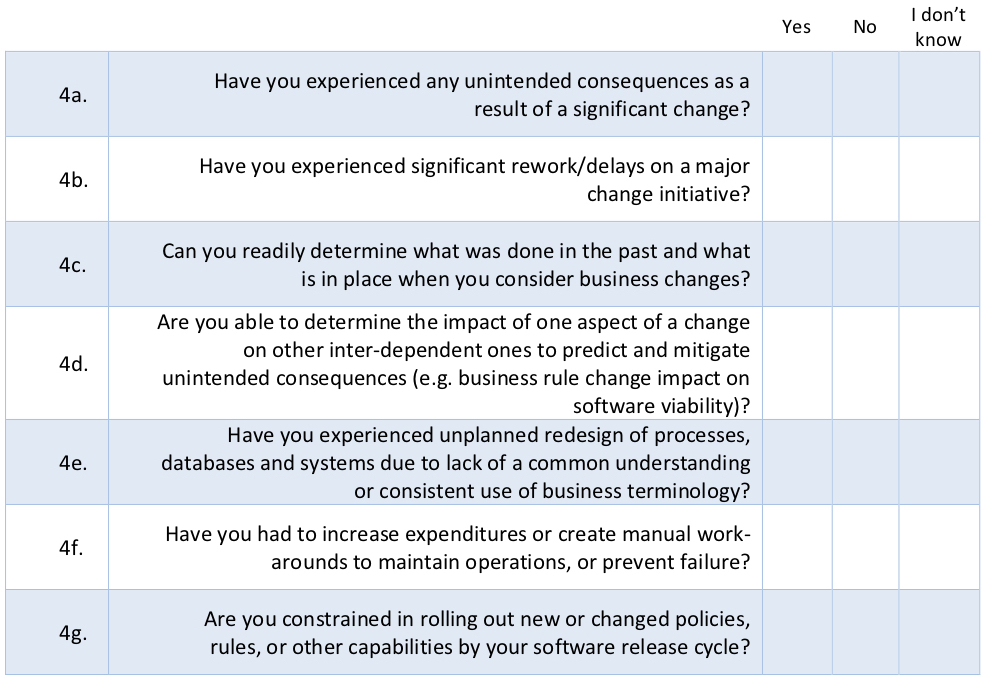
Section 5 - Organization Agility
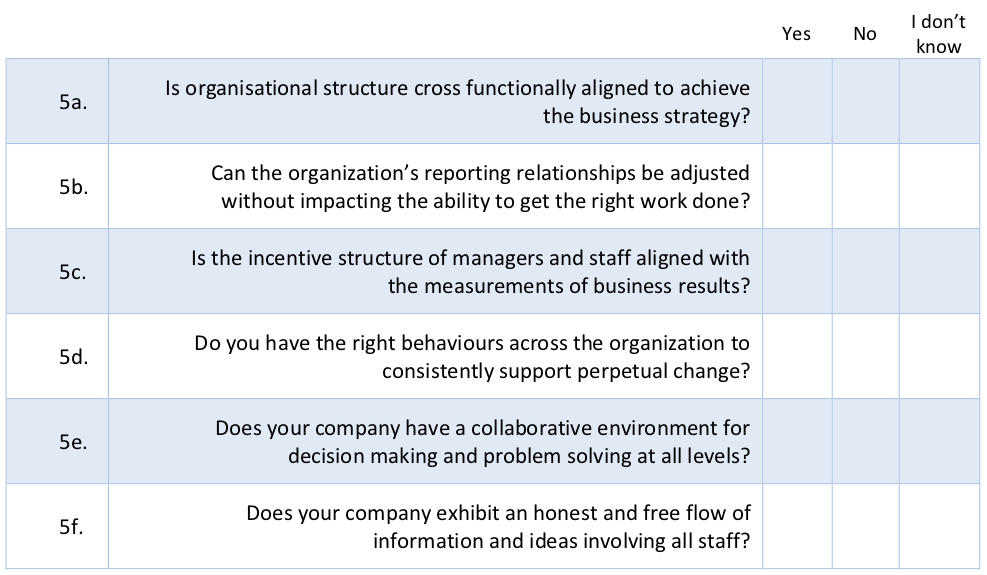
Section 6 - Value Chain Perspective
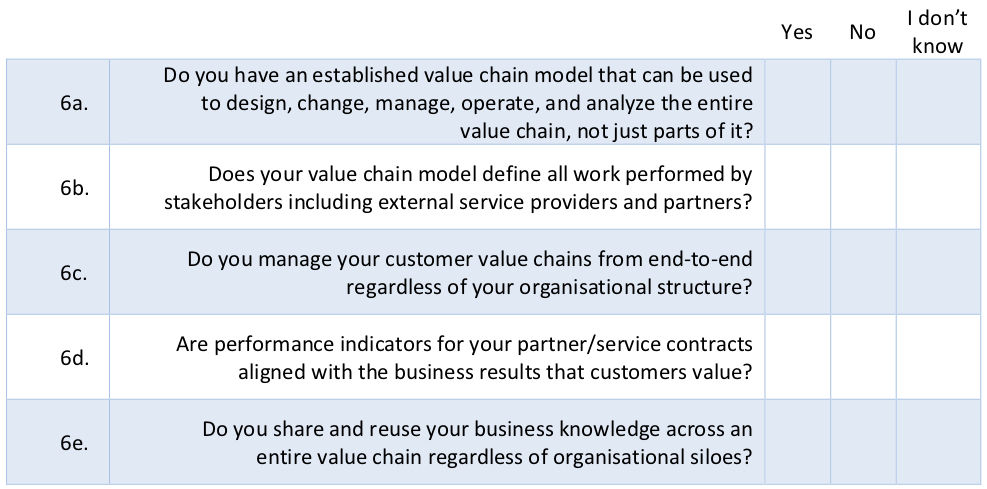
Section 7 - Business Knowledge and its Management
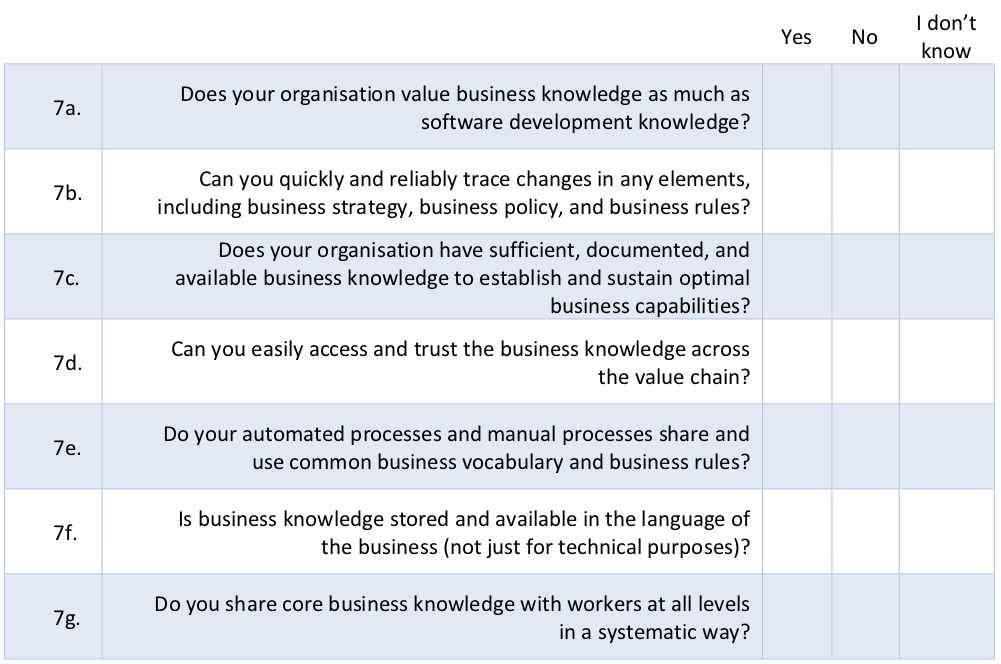
Section 8 - Business Knowledge-Base / Single source of business truth
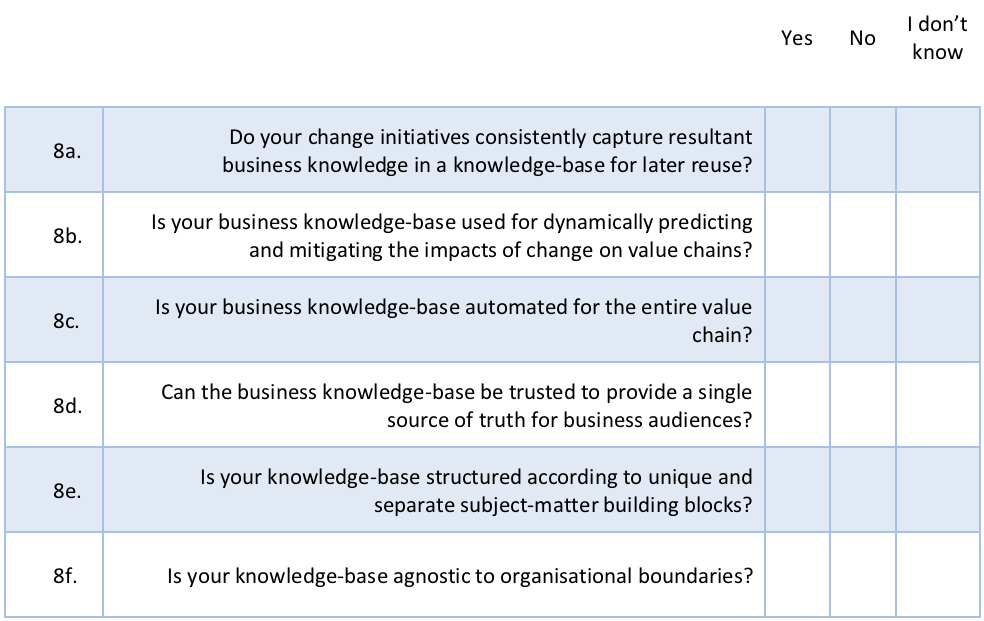
[1]Thanks to Gladys S.W. Lam for input to the content and organization of the Manifesto document suite and to Sasha Aganova for shepherding the work through to completion.
© Business Rule Solutions, LLC. 2018. © John A. Zachman, Zachman International. 2018. © Process Renewal Consulting Group (2015), Inc. 2018.